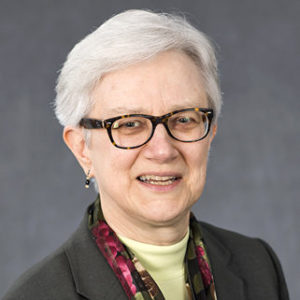Third Sunday of Advent
12 Dec 2019

First Reading: Isaiah 35: 1-6A, 10
Responsorial Psalm: 146: 6-7, 8-9, 9-10
Second Reading: James 5: 7-10
Gospel: Matthew 11: 2-11
The Third Sunday of Advent is called Gaudete Sunday (gaudete – Latin “rejoice”). This day we reflect on the deep joy of God’s profound grace and love, while anticipating the fullness of our spiritual rebirth that is made possible by the coming of Christ at Christmas. This anticipation is symbolized by the rose color of the third candle in the Advent Wreath and the vestments. This joyful pause, itself symbolic, bears a message of hope. We are never alone amid the challenges of life. Rather, God’s love and mercy are always with us beckoning us forward, offering healing, support, and renewal.
Today’s scripture readings brim with hope and joy. Isaiah addressed the beleaguered People of Israel who longed to return home from years of living in exile as captives. His message is like a rousing “pep talk.” He presents a compelling vision of comfort, well-being, and even opulence, recalling familiar places well known in the distant memory of the people — Lebanon, Carmel, and Sharon. People are emboldened as they recall the God they once knew as the One who brought justice, mercy, and healing. That same God soon will come with vindication! Indeed, Israel will know again the joy and gladness of Zion! Israel’s imagination expands allowing people to visualize crossing the formidable desert that confines them in exile apart from their true homeland. Who among us has not experienced a similar sense of desperation amid the violence and complexities of life, and sought a simpler, peaceful and joy-filled status?
It is trying times that shaped the context of the reading from James. Not surprisingly, the early Christian communities experienced various controversies as they discerned how to follow Jesus apart from his physical presence among them. Our present portion of the letter addresses that dimension of the human spirit that longs for totality — complete joy, hope, and a comfortable predictability in life. Yet human limitations frequently stand behind our disagreements, disappointments, or conflicts and we seemingly grow evermore anxious and impotent in our striving for resolutions. But James reminds us that the totality we long for is found only in God. Thus yet today, we are challenged to allow God’s Spirit to transform our longings into constructive patience. Like the wise farmer, patiently relying on the ecological cycles of the rains and soils, we need to exercise patience over our desire for fullness, completeness, and perfection and do works of mercy, justice, and healing for our suffering planet.
Perhaps there is no greater challenge to patience than to be illegally and unjustly imprisoned by an imperialistic authority. Such was the situation of John the Baptist. So how was it possible to find hope or joy in such dire circumstances? He asked questions, opening himself to God and risking the cost of the answers he might receive. While the text does not tell us whether John’s disciples ever actually conveyed Jesus’ answer to him, we know the answer! Jesus said: “… the blind regain their sight, the lame walk, lepers are cleansed, the deaf hear, the dead are raised, and the poor have the good news proclaimed to them” (Mt. 11:4-6). These are the signs of hope that mark God’s fidelity and presence, signaling that the Reign of God is indeed present in our midst.
But in order for us to sustain faith and live in joyful expectation of the fullness of that Reign, human limitations require that we experience concrete proofs of that reality. Christians need to support one another and all others by cooperating with God — especially in the Advent time — in breaking through the cacophony of materialism and violence of a perplexed and complex world. How will we make Gaudete Sunday live beyond the walls of our churches? How will we rejoice when —
• the November 26th UN “Emissions Gap Report” that warns: “… unless global greenhouse gas emissions fall by 7.6 % each year between 2020 and 2030, the world will miss the opportunity to meet the 1.5° Centigrade temperature goal of the Paris Agreement.”
• structural racism, tribalism and xenophobia thrive in our neighborhoods and borders?
• millions bear the burdens of poverty, hunger, and homelessness — especially in the USA?
Professor of Catholic Theological Ethics
The Erica and Harry John Family Endowed Chair in Catholic Ethics